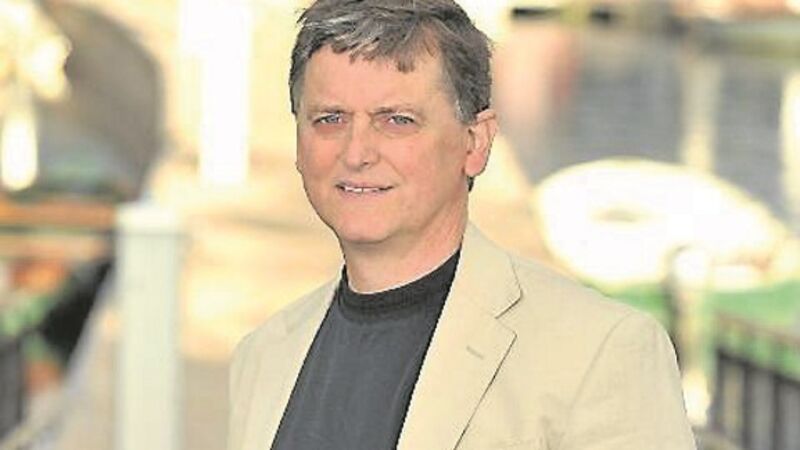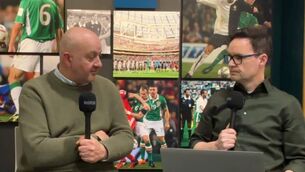Hennessy calls for ‘calm, reflective’ assessment after Rugby World Cup exit

Last weekend France, Wales, Scotland and Ireland all crashed out of the tournament, leaving four southern hemisphere sides in the semi-finals.
Hennessy stressed the need to be “calm and reflective” when evaluating Ireland’s performances.
“Look, with any trauma you need time to step back rather than taking an emotive look at it.
“Let’s be calm and reflective about it. We had a good innings since the 2003 World Cup but we had a disappointing tournament in 1999 and the same in 2007.
“In 2011 we responded reasonably well, but this beast that is the Rugby World Cup is something we’re not well prepared for in the northern hemisphere.”
Hennessy compares the run-in to the tournament for countries on either side of the equator.
“Take the Rugby Championship during the summer — I think we’re missing something by not looking at that when you’re searching for reasons for northern hemisphere under-performance in the World Cup.
“One of the things we do know is that we incur the highest instances of injuries for players in the early season, so when we look at what the southern hemisphere teams have been through, it’s real match play, at a significant level and over a significant period of time through the summer. They’re in the middle of their season.
“That results in a qualified competitive advantage, while at the same time we still have injury risks that are higher than what one would expect in mid-season.
“That’s what the stats tell us and every four years, when this rolls around, I’m bemused we can’t temper our expectations appropriately.
“The northern hemisphere isn’t prepared schedule-wise to cope with the demands of the tournament while the southern hemisphere teams are teed up ideally. We tend to forget that.”
Hennessy, who was involved in three World Cup campaigns with Ireland, says the direct consequence of the scheduling challenge is the need for a “massive” squad.
“The squad needs to be seriously well prepared in terms of exposure to that level of play, and that only comes around in the autumn for us when we play southern hemisphere teams.”
Hennessy also points out that Ireland are still developing.
“Go back to 2005, and there was a great response to a collective recognition that the game being played in Ireland needed to be worked out by those who knew what the game meant. There was a great agreement between coaches, to work together, and that was more challenging than it sounds.
“Now, when we talk about skill sets being on display in this World Cup, what we’re seeing — that changes each time around. Now it’s about a 15-man unit rather than forwards and backs — we’re seeing exceptional handling by forwards moving at a rate we haven’t seen before.
“Ireland have come from a situation where we didn’t win a Triple Crown in 15 years to winning three or four, to playing at the highest level in Europe — those are levels of development we’re still going through.
“We need to sit down calmly and ask if World Cup 2019 is a priority for us, and if it is we need to see what steps we need to take to prepare for that.
“If you’re talking about the latter, eight years hence, then you’re talking about current 17 or 18-year-olds. What are we doing with them? We don’t have a crystal ball but we can see the trends that are taking place.
“There’s a developmental process going on. Thumbs up to the Irish team on what they’re doing in the Six Nations, but don’t forget that it took eight years to get to that level. People forget that.
“And when people talk about how fast Argentina have developed, don’t forget they pummelled us a few times years ago. It was always touch and go, and if we played them in two weeks’ time the result might be different.
“A one-off example doesn’t give you a trend.”
Dr Liam Hennessy is the Academic Director of Setanta College















